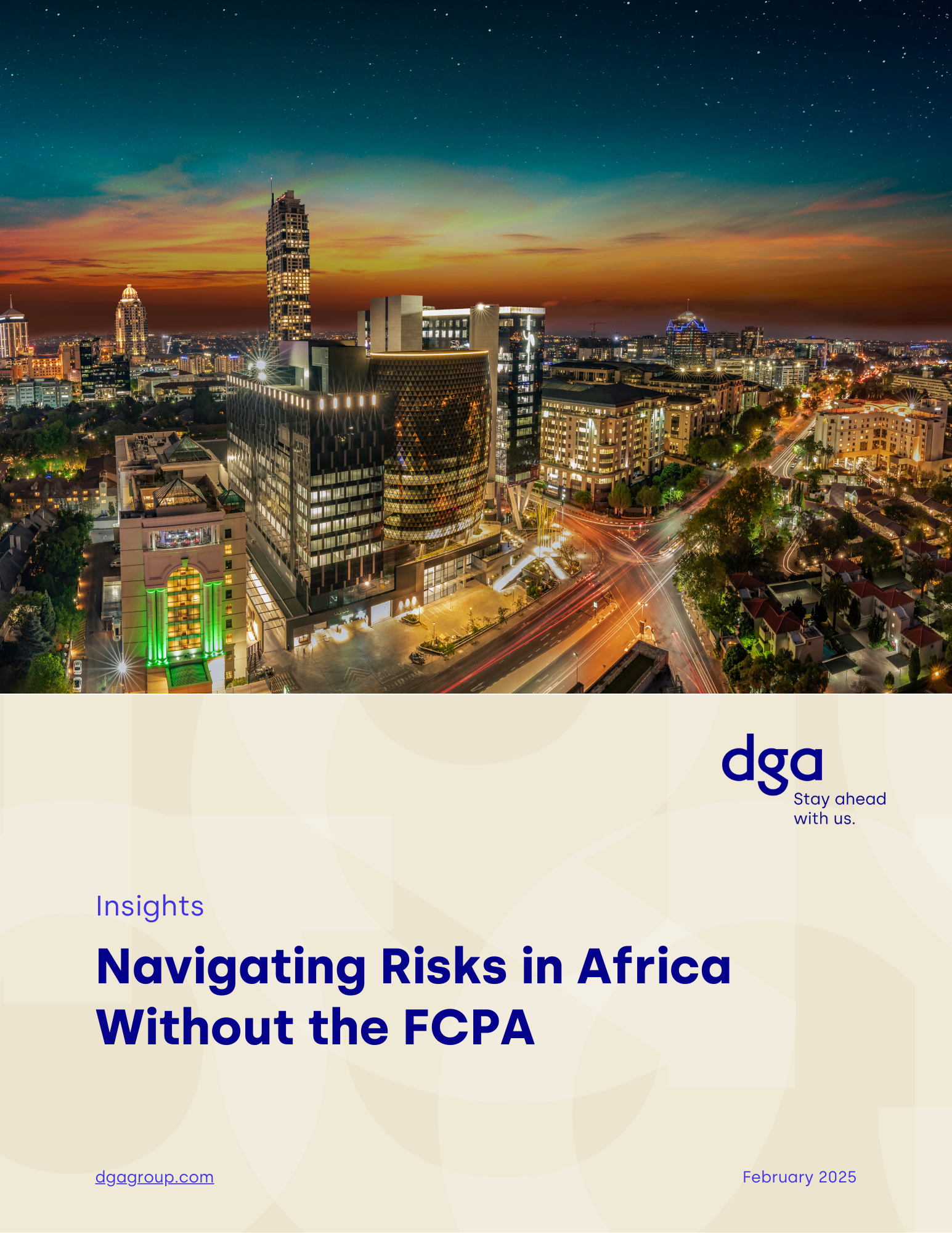
Doing Business in Africa Without the FCPA: What’s at Stake?
The Foreign Corrupt Practices Act (FCPA) has long provided U.S. companies with a clear framework for conducting business ethically in global markets. With recent rollbacks in enforcement, the focus is no longer just about compliance; it now extends to how firms strategically manage risk and maintain a competitive advantage in regions where regulatory expectations are evolving, including Africa. As FCPA enforcement diminishes, companies operating in Africa face a new question: How do they effectively manage risk in an environment where U.S. oversight is loosening, but local and global expectations continue to evolve?
What Changes—and What Doesn’t?
Without the FCPA as a guiding standard, U.S. businesses face a more complex risk environment
that requires careful navigation:
- Regulatory uncertainty – While the FCPA may be undergoing changes, African regulatory frameworks remain active. Countries such as Nigeria, Kenya, and South Africa have strengthened anti-corruption enforcement, and global frameworks like the U.K. Bribery Act still apply. With the FCPA no longer serving as a universal compliance benchmark for U.S. companies, they must now navigate various local and international anti-corruption laws, ensuring their practices align with evolving regulatory expectations across multiple jurisdictions.
- Market positioning and reputation – Investors, lenders, and African government partners increasingly consider governance risk in business partnerships. Companies neglecting compliance may face reputational damage, operational challenges, or reduced access to capital.
- Competitive dynamics – In the absence of a stringent U.S.anti-corruption framework, companies might encounter avariety of business practices from global competitors. Somefirms may operate under less strict regulations, while othersthat uphold high integrity standards may position themselvesas reliable partners in a changing market.
How Should Businesses Respond?
The changing regulatory landscape reshapes compliancerequirements rather than eliminating them. Reduced FCPA may seem to ease U.S. companies’ burdens, but it actually introducesnew challenges, such as navigating fragmented anti-corruptionframeworks to managing heightened reputational andoperational risks. U.S. businesses operating in Africa mustreassess their compliance strategies, internal controls, and local regulatory engagement to ensure resilience.
With these shifts, practical, market-specific risk management is essential. Companies that proactively address compliance, governance, and strategic positioning will be best placed to mitigate risks and enhance business opportunities across the continent.
About DGA Group
DGA Group is a global advisory firm that helps clients protect – and grow – what they have built in today’s complex business environment. We understand the challenges and opportunities in an increasingly regulated and interconnected world. Leveraging the expertise and experience of our team at Albright Stonebridge Group, a leader in global strategy and commercial diplomacy, and a deep bench of communications, public affairs, government relations and business intelligence consultants, we help clients navigate and shape global policy, reputational, and financial issues. To learn more, visit dgagroup.com.
Contact Us
Please contact Paul Ansah, Partner, at Paul.Ansah@dgagroup.com and Pierre Tantchou, Associate Partner, at Pierre.Tantchou@dgagroup.com with any questions or to arrange a follow up conversation.